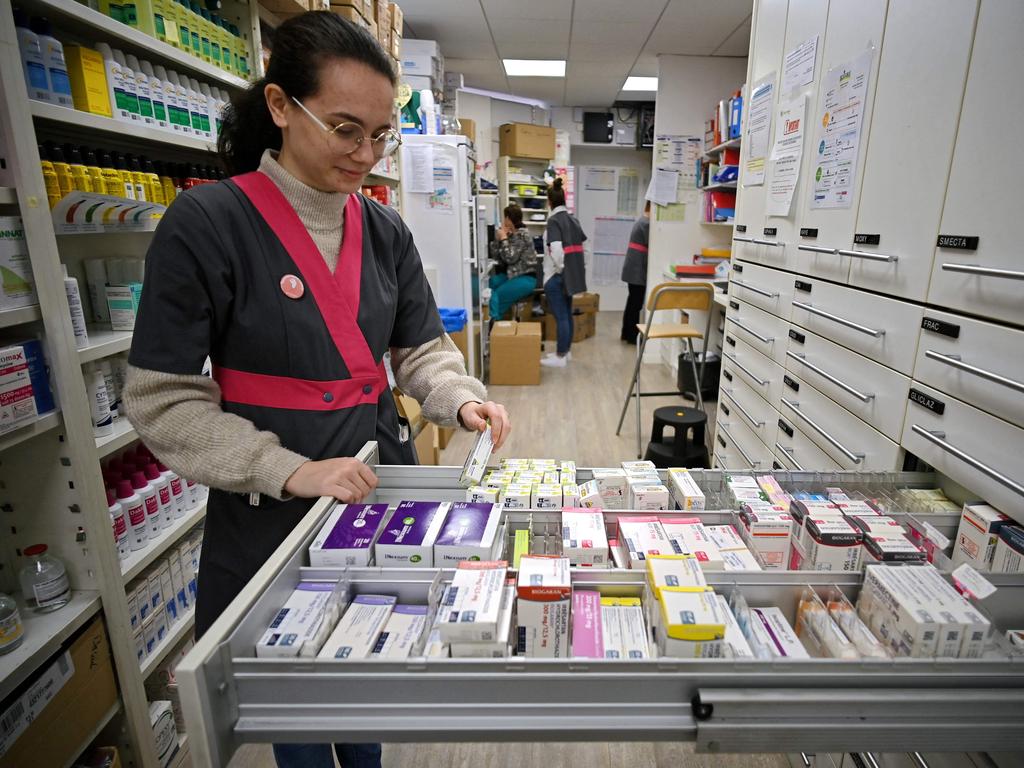Labor MPs revolt over 60-day dispensing
Labor MPs want more compensation to pharmacies impacted by PM’s 60-day dispensing policy.

Labor senator Helen Polley has warned 60-day dispensing may force regional pharmacies to close, while Labor MP Mike Freelander has called for an increase in compensation for chemists.
The push comes as 6000 pharmacies launched a nationwide blitz against the policy – which will allow GPs to write scripts for two months of medicine from September 1 – with the industry urging the federal government to keep negotiating in order to save 20,000 jobs.
The policy, which doubles the amount of medicine accessed from a single script, has been welcomed by doctors who say patients will save money. But pharmacy operators warn 60-day dispensing could trigger significant shortages and cause months of delays.
Senator Polley said “everything should be on the table” to protect smaller pharmacies from closure. The Tasmanian senator – who said she was not briefed before Labor announced the change – said she was worried her constituents could lose access to medicines.
“I am concerned that, particularly in Tasmania, and the same in other rural areas, that these are small pharmacies and they need to make sure they can make a living,” she said. “We don’t want any pharmacists to close down and force people to travel long distances to fill their scripts. There is genuine concern and we have to have an open dialogue.”
Dr Freelander, a paediatrician, called on the Albanese government to ensure pharmacies were better compensated.
“The government needs to be open about what we can do to compensate pharmacies better rather than shutting down the policy altogether,” he said. “We need to make sure that pharmacies are adequately compensated, but that they know 60-day is here to stay. It’s better for patients and the (Pharmacy) Guild needs to recognise that and not be arguing about turning back 60-day dispensing.”
Another Labor MP, who did not want to be named, was worried Australians would not save as much on medicines under the policy as originally promised. “I do worry about pharmacies in regional areas and some are really concerned about this because pharmacy plays a broad role in the community. The details need to be scrutinised,” the MP said.
Labor MPs last month were directed not to voice concerns over the government’s move to double drug dispensing, with a key Labor insider calling and texting the offices of government MPs strongly advising them not to comment on the issue after The Australian made inquiries.
The Pharmacy Guild’s campaign will target eight ultra-marginal Labor-held electorates: Gilmore held by Fiona Phillips, Parramatta (Andrew Charlton), Higgins (Michelle Ananda-Rajah), Boothby (Louise Miller-Frost) Hasluck (Tania Lawrence) Pearce (Tracey Roberts) Lyons (Brian Mitchell) and Aston (Mary Doyle).
Health Minister Mark Butler called it “the latest scare campaign from the pharmacy lobby group about the government’s cheaper medicines policy”.
“The truth is the government is delivering cheaper medicines through 60-day dispensing for more than six million Australians,” he said. “This will halve the cost of more than 300 medicines for millions of Australians, including pensioners, who are living with a chronic condition and doing it tough on cost of living.”

The Australian last week revealed the Albanese government was yet to complete modelling on its 60-day dispensing policy despite announcing it almost two months ago.
The Department of Health has contracted McKinsey and University of Technology Sydney to “support the department’s analysis” of the policy, after it was announced in April.
Mr Butler has said analysis was undertaken by the Department of Prime Minister and Cabinet’s Office of Impact Assessment, which found there would be “substantial benefits” to patients.
However, the analysis also estimated pharmacies would lose on average up to $158,000 a year due to reduced dispensing fees, with OIA executive director Jason Lange telling the Health Department that more consultation with stakeholders could have taken place.
Mr Mitchell, whose electorate of Lyons will be targeted by the guild’s campaign, said he would “not be bullied” and that “the days of special interests dictating health policy are over”.
“We will monitor the rollout to ensure that there are no unintended consequences and if there are unforeseen impacts then those matters will be attended to at the time,” Mr Mitchell said.







To join the conversation, please log in. Don't have an account? Register
Join the conversation, you are commenting as Logout